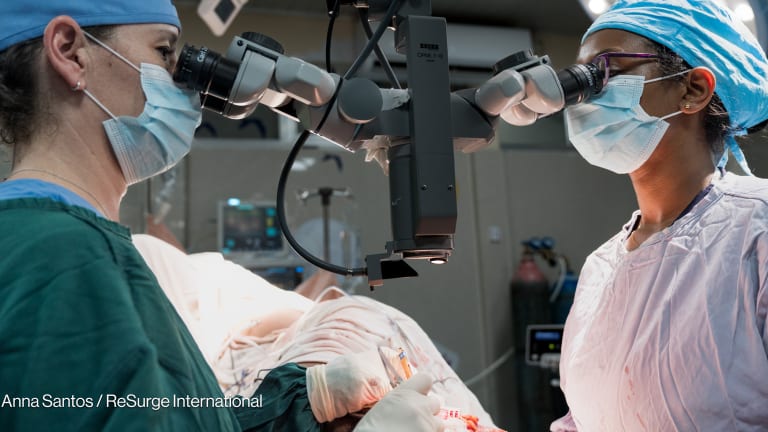The pharma industry is in a unique position to develop reproductive health therapies and programs, some of which can be designed with input from those patients who need them. As a physician and leader in pharma, I am calling on my industry colleagues to ensure we listen to the voices of patients everywhere.
With nearly 25 years of experience in women’s health, I have seen how challenges, such as stigma or health literacy can impact the ability of patients to have meaningful dialogues with health care professionals. My dedication to women’s health has remained single-minded as I made the transition from being a practicing physician to the pharmaceutical industry. I was drawn to pharma because I saw it as an opportunity to support women on a global scale.
I was born and raised in Nigeria, the daughter of a white American mother, a Peace Corps volunteer, and a Black Nigerian father. Experiences growing up gave me a global view of women’s health, the inequities that exist, and how stigma, myth, and lack of access can have deadly consequences.








